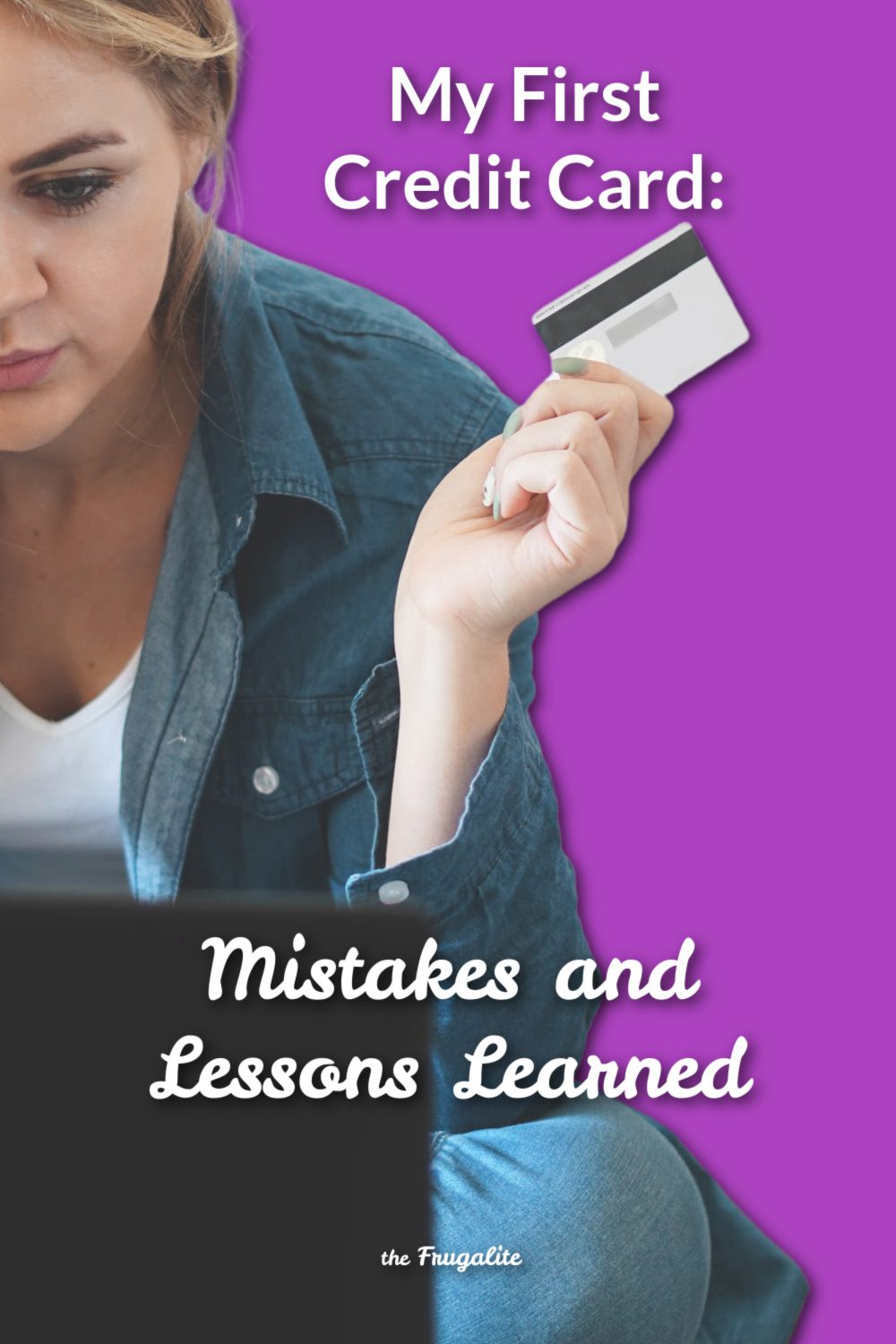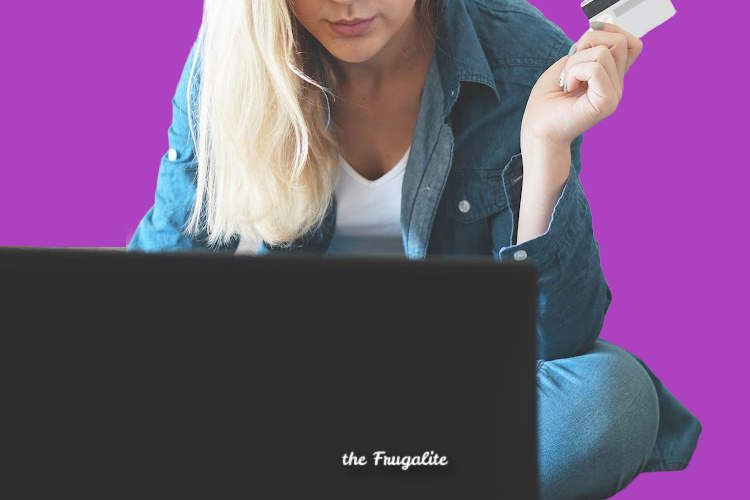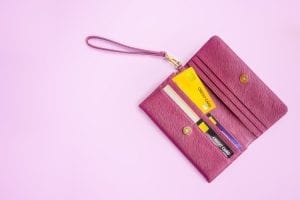(Psst: The FTC wants me to remind you that this website contains affiliate links. That means if you make a purchase from a link you click on, I might receive a small commission. This does not increase the price you’ll pay for that item nor does it decrease the awesomeness of the item. ~ Daisy)
If you’ve read any of my previous articles, you know that I grew up in a household where money was tight more than it wasn’t. As a kid, I worked hard for every penny I got and was a pretty smart kid with saving the money I earned.
I landed my first job babysitting the very day I turned 12 (the age you have to be to babysit in Ontario), and I made money babysitting as often as I could. By the time I was 14, I had a small savings of a couple of hundred dollars, was paying for my own cell phone bill every month, and had money to make bigger purchases, such as a $300 camera—all with money that I earned $20 at a time.
When I was 17, I paid for the school trip – a week in New York City – where we did everything from Times Square, to Broadway, to the Natural History Museum. I’d even put aside an extra $600 in spending money for that trip (though I don’t think I used more than $100 of it.) When it came time to go off to college, I even had enough saved up to buy a brand new iPad and laptop for my studies and the little bit of work I’d started doing online.
Needless to say, I’d learned some good lessons when it came to budgeting and savings. I was far from a frivolous spender. It didn’t last, though.
What changed?
Well, I walked into my bank one day. I don’t remember why I was even there in the first place. I was ushered into a private room and was told about the numerous advantages of a credit card and why I should get one. So, I got one.
In my defense, I did know the dangers of credit cards. I knew how easy it could be to let that debt pile up, and I’d been advised but a close family friend who had gone on the best ways to use it. Never spend more than you have, and pay it off IMMEDIATELY. And, for the first year and a half, I did. And because there were transaction fees for using my debit card but not for my credit card, guess which one I chose to utilize?
While I was in school, I had low living expenses, I had a full scholarship to cover my tuition, and I worked hard over the summer, so I didn’t have to during the school year. I did sign up for student loans, but with it came bursaries from the government. When I got the loan money in, though, almost all of it went straight into a high-interest savings account, and I didn’t touch a penny of it (I just watched that interest roll in). It was to the point that when I graduated college, whereas most of my friends in the same program had $9,000-$12,000 in debt, I only had $2000 of student loans.
Unfortunately, that’s when my depression really started to kick in.
The credit card conundrum…
Up until this point, I was paying off my credit card regularly. Maybe not every day, but at least in full and before it was due. When the bank told me how great I was with my credit card and offered a limit increase, I was ecstatic! My credit score was in the high 700’s and by the time I was 21, I had access to $5000 on my credit card.
But remember that depression I mentioned? Well, it made it nearly impossible for me to get out of bed most days, let alone work. So, with no emergency fund (all the money I’d had went to my student loans), I started paying for everything, all the bills that I could manage, with my credit card. The balance I carried on it got higher and higher, and my ability to pay it got worse and worse. It was the bad kind of debt snowball.
By the time I was 24, I had four different credit cards, with a balance of over $16,000 between them all. I also found myself with a car loan of the same balance and $1000 left on my student loans. I was broke, living paycheck to paycheck, with a horrible credit score, working at a call center job I hated with the power of a thousand suns, and still depressed.
So, what were my biggest mistakes with my credit card?
While many people would say getting a credit card in the first place was a big mistake, I don’t really regret it. I did learn a lot from having one, my credit score was high, and I got a fair amount of free things in points (including a round trip flight from Toronto to California, where my mom and sister were living at the time).
Here are the things I do regret:
- Increasing my limit – There is no reason a 20-year-old needed enough of a credit limit to buy a whole car. There’s just not. Every time the bank increased my limit, I gave myself permission to spend more. I remember very vividly having the (WRONG) thought, “Well, I’m already in debt. What’s a little more?”
- Not making minimum payments – This didn’t happen often, but on occasion, I would miss a payment, and that added a lot of extra costs. If you do have to miss a payment, at least call the credit card company and see if you can work out a deal. It’ll help in the long run.
- Having a credit card with an annual fee – Yes, I did get more points with the card with the annual fee, but I didn’t break much more than even. There are plenty of credit cards you can get with no annual fee while still getting extra rewards and points.
- Not doing research on which card to get – When I got my first card, it was what the bank talked me into. They had three to choose from, and of course, I chose the one where I could collect points versus the free one without points. If I’d actually done my research, I definitely would have gone with a different card.
- Using my credit card in place of an emergency fund – A lot of people who don’t have emergency funds actually use their credit cards as an emergency fund. But, that can get very expensive when you have to start paying interest on it or if you don’t have enough room on your card. I know, because I did it more times than I can count.
With all that went wrong with my credit card, did anything go right?
While I did make a lot of mistakes, I learned a lot and still use a credit card, even now. I’m just a lot smarter about it.
Here’s what I do right now:
- Have a low limit. – Instead of having a $16,000 limit, I now have a limit of only $500. I actually had to argue with the credit card company to lower my limit from $1000 to $500. However, when it came to canceling or lowering, they let me lower it. This makes it so, worst-case scenario, it’ll be a lot harder to get in the same amount of trouble.
- I did my research. – The one remaining credit card I have was one I was very intentional with. It is a free card, it’s connected to the gas station I usually use, my pharmacy and grocery store. And those are the only three places I use it. While I can use it anywhere, my main goal with it is to work on building back up my credit score and getting extra points, which means more free groceries. Typically, I get about $30 in free groceries a month between the credit card and bonus points.
- I pay my card every month. – I may not pay it the same day, but I do make a point of paying it off in full before every bill comes out. If, for some reason, I can’t pay it in full (which doesn’t often happen anymore), I pay as much as I can without going over budget and make sure I pay it as soon as I can.
- I talked to my bank. – Talking to my bank about my situation and coming up with a solution together was one of the best decisions of my life. In the last two years, I’ve closed three of my cards and paid off a total of $5000 of my credit card debt without gaining more. The remaining I do have is now in a closed loan, with an extremely low-interest rate, and I know it will 100% be paid off in five years versus what could have been decades with the minimum payments on the card at the same price.
- I look at ALL of my transactions. – Every month, when the bill comes out (though often periodically thanks to online banking), I look at my statements. I look at every transaction. If something doesn’t look familiar or I didn’t buy something, you better know I’m calling the credit card company to get it straightened out or removed. If you take anything away from this article, take this tip. I can’t tell you how many times I’ve caught unrecognized payments or purchases on my cards in the last ten years.
How do you feel about credit cards?
So, what’s your opinion? Do you use a credit card? What’s your best advice or biggest mistake? Share in the comments!
About Chloe Morgan
Chloe Morgan grew up living with a tight budget. However, the lessons she learned began to slip as it does for many college age students on their own for the first time. As she’s gotten older, she’s started to deal with the repercussions and has taken on a frugal way of living. Keeping her costs low helps her pay off debt and save for her future. Chloe lives in Northern Ontario, Canada, with her cute dog, Rhea.












7 thoughts on “My First Credit Card: Mistakes and Lessons Learned”
I learned when I was younger similar lessons but one good lesson I learned that many people don’t know about is credit card insurance. It was through credit card company & paid monthly charge but if I lost my job or was unable to work I could file claim & current credit card balance would be paid in full. That was my very first credit card and I did end up using insurance claim, granted balance was $600 but I was so grateful I had that option.
Fast forward years later & I have had joint credit cards (with my then husband) & there were many times where I would use my rewards towards the next payment. At that time we had 2 cards plus added me on an existing card while he still had his personal card that he had before me. I paid one card off & closed since we had another card that would cover membership & could use anywhere, not just that store (which is good but was much easier to add debt). my husband recently decided he had other priorities & I immediately found a way to pay off that card & closed that account.
Now only credit cards left are one he had & added me onto (& I froze that card) that I got downgraded to authorized user instead of joint (which means as joint that credit card was being reported to my credit score–until I noticed it wasn’t a few months ago & now is not because somehow he removed my name as joint so does not show anymore on my credit score).
I do have store credit card that has great 6 or 12 months intrest free on purchases over $1000 & have used it & paid off within time period which has increased available credit amount. But I only use this card once a year or two just to keep it active so don’t get closed due to inactivity. I bought my son a xmas gift (also sends me coupons to use in combination of using that credit card) and immediately paid the bill.
I also opened an individual credit card with low credit available just as precaution because knowing my credit score will drastically drop after paying off mortgage & auto loan wanted to have few items already in place to make sure my 770 credit score didn’t go to below 500.
In today’s world you have to have some kind of credit to do most anything. Unfortunately people are not taught how to use credit correctly and there’s always an unplanned emergency or sense of entitlement that contributes to credit problems. Of course banks make their most money from intrest & late fees on all credit so they are more than happy to give access to credit. Just use it wisely.
Once our kids started to drive, we got them a credit card (low credit limit of $500) to be used for purchasing gas OR a car emergency (never happened). Reinforced with both kids – calculate how many hours you have to work (factoring in taxes) to buy X. Drove the point home pretty quick. Increased the credit limit when kids were in college – both reported every purchase to me. Upside is both benefited for our (and their) prudent card usage when it came to credit scores. After both kids were on their own, I kept the cards open and glad I did. One kid was a victim of a breach so having that card during the travel home made Mom feel better.
College kids were prey for credit cards for too long. Surprisingly the laws put in place survived puke eras. But I still think any type of “rewards” or “points” for credit (or debit) carda should be prohibited. One may think s/he is getting money back but in reality, we all pay higher costs to cover merchant fees.
Back in the 90s, our issuer sold their credit card portfolio. The buyer would only auto debit the MINIMUM payment, not the full payment. Adios to buyer was my response – time for a new card issuer.
I’ll use a credit card buying online. Local/small business cash if possible else debit card (not particularly fond of debit either). It has been 40+ years since I’ve carried a balance on my credit card. I don’t pass judgement on necessities (such as tires for one’s car). Spring break to Floridastan – bad choice.
One thing about a credit card is the need to keep one’s credit rating up. The FICO score will actually drop if you don’t use “enough” credit. An excellent FICO score is helpful for high ticket purchases, like a house or new car. That doesn’t mean one has to go hog-wild, of course.
Rewards points are great only if the card balance is paid every month. If not, the interest on the loan will far outweigh the benefits of the points. Of course there are times when the balance can’t be paid in full; for those, pay as much as you can and zero that balance ASAP.
I use credit cards for online purchases because the legal protections are still far greater than for debit cards. Buying local for cash is the best option but not always possible. Local, indoor terminals are the only places I use debit cards. Think card skimmers and keystroke loggers.
If we skipped the “diversity training” in high school and taught financial literacy instead, kids wouldn’t be swayed in college by the shiny new card thing. Financial literacy is very important!
No worries about learning the hard way, Chloe. Done this been there! At least you DID learn. And yes, call center jobs suck! So glad to be out of them myself.
Skipping diversity training is a bad idea. Won’t matter how financially literate you are when you won’t be hired at a job because you can’t function in the sandbox.
I believe concentrating on a stem curriculum along with English, history, and reading comprehension far outweighs far left opinion courses. I’m not sure why some people think “the right opinions” should be government mandated to be taught. My kids are successful because they were prepared for more than playing in the sandbox.
Jayne is correct. Financial literacy should be taught.
And your children are likely to lose his/her job because s/he can’t work within the nice, whites only bubble. And another fact – whites are a shrinking minority. And to be blunt, too many states under fund public schools and worry more about “the feelings of whites” – aka race baiting. Corporate America looks to fill jobs with competent workers – regardless of race or gender. Looking at the majority of hires at the large corporation for which I work, they ain’t white.
Why would you assume my family is white? You appear to have a major problem with race. Maybe for your own peace of mind you should seek help.